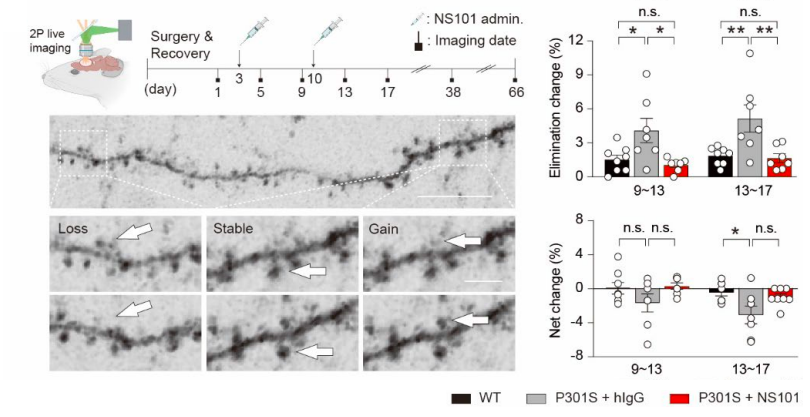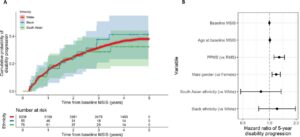Han-Byul Kim, et al. – Korea University.

Background: Existing AD treatments, as well as those under development, fail to prevent synapse loss, potentially limiting their ability to slow or block cognitive decline. Additionally, animal model and genome-wide association studies suggest a role for the secreted protein FAM19A5 in synaptic integrity and AD, but the binding partner(s) and molecular function of this protein remain unknown.
This Study: Kim and colleagues first determined that FAM19A5 binds the presynaptic cell adhesion molecule LRRC4B, which leads to reduced synapse number in vitro. They developed an anti-FAM19A5 monoclonal antibody (NS101) capable of blocking this interaction, which crossed the blood-brain barrier following intravenous (IV) infusion in rats to promote clearance of FAM19A5 into the cerebrospinal fluid (CSF) and blood for excretion. Infusion of NS101 into AD mouse models prevented synapse elimination, improved synaptic function, and blocked impairments in cognitive performance on 3 distinct assays. A pilot experiment found that IV administration of NS101 was also effective in promoting FAM19A5 clearance in humans, providing preliminary evidence that it may be a functional therapeutic option.
Bottom Line: A monoclonal antibody against FAM19A5 might be capable of blocking synapse loss in AD, slowing or preventing cognitive impairment.




